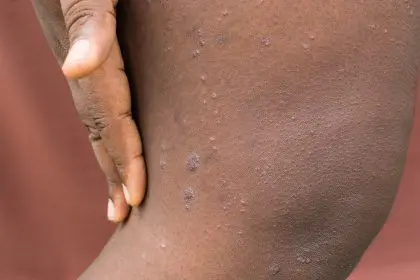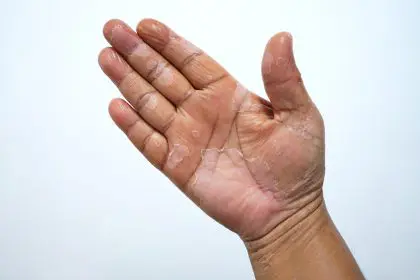That uncomfortable urge to scratch your palms might be more than just an annoyance. While some dismiss itchy palms as merely a sign of coming fortune, medical professionals recognize this sensation as a potential indicator of various health conditions. Understanding the causes can help determine when simple remedies suffice and when medical attention becomes necessary.
Common triggers of itchy palms
Dry skin remains one of the most frequent culprits behind itchy palms. Cold weather, low humidity, and frequent hand washing can strip the skin of natural moisture, leading to irritation. The constant exposure of palms to environmental factors makes them particularly susceptible to dryness and subsequent itching.
Contact with irritants presents another common cause. Everyday items like harsh soaps, cleaning products, or certain metals can trigger allergic reactions known as contact dermatitis. These reactions often manifest as redness and itching in the affected areas, sometimes accompanied by swelling or inflammation.
Chronic skin conditions
Persistent palm itching might signal underlying skin conditions. Eczema and psoriasis frequently affect the palms, causing patches of irritated, inflamed skin. These chronic conditions require proper medical management to control symptoms and prevent flare-ups.
The stress connection also plays a significant role. Psychological pressure can manifest physically, with itchy palms being one surprising symptom. This mind-body connection occurs through the nervous system’s heightened sensitivity during periods of anxiety or stress.
Medical conditions to consider
Sometimes itchy palms signal more serious health concerns. Diabetes patients often experience skin irritation, including palm itching, due to poor circulation and blood sugar fluctuations. The connection between blood sugar levels and skin health makes this symptom worth monitoring.
Liver conditions can also manifest through itchy skin, including the palms. When the liver struggles to process bile properly, the resulting buildup in the bloodstream can cause widespread itching. This type of itch often intensifies at night and may affect other body parts.
Thyroid disorders, particularly hypothyroidism, commonly cause skin changes. The reduced hormone production affects the skin’s ability to maintain proper moisture levels, leading to dryness and itching across various body areas, including the palms.
Managing itchy palms effectively
Proper skin care forms the foundation of managing itchy palms. Using gentle, fragrance-free moisturizers helps maintain the skin’s natural barrier. Products containing ceramides or hyaluronic acid prove particularly effective at restoring moisture balance.
Environmental modifications can significantly impact symptom control. Maintaining proper humidity levels indoors and protecting hands from harsh conditions can prevent moisture loss. Using protective gloves during cleaning or dishwashing helps avoid contact with potential irritants.
Cool compresses provide immediate relief for itchy palms. This simple remedy helps reduce inflammation and temporarily alleviates the urge to scratch. However, addressing the underlying cause remains crucial for long-term relief.
Professional medical guidance
Certain symptoms warrant prompt medical attention. Seek professional evaluation if palm itching: Persists beyond a few days Interferes with daily activities or sleep Accompanies other concerning symptoms Shows signs of infection Causes significant distress
Healthcare providers can determine whether the itching stems from a simple skin issue or indicates a more serious condition requiring comprehensive treatment.
Long-term management strategies
Successful management of itchy palms often requires a multi-faceted approach. Beyond treating immediate symptoms, identifying and addressing triggers helps prevent future episodes. Regular moisturizing, proper hand protection, and stress management techniques all contribute to long-term relief.
For chronic conditions, working closely with healthcare providers ensures appropriate treatment adjustments as needed. This collaborative approach helps optimize symptom control while monitoring for any changes that might signal developing complications.
Impact on quality of life
Persistent palm itching can significantly affect daily activities and emotional well-being. The constant urge to scratch may distract from work, disturb sleep, and cause social anxiety. Acknowledging these impacts helps validate the importance of seeking proper treatment rather than dismissing the symptom as merely annoying.
Understanding the various causes of itchy palms enables better management of this common but potentially significant symptom. While some cases resolve with simple home care, others require medical intervention. Paying attention to accompanying symptoms and patterns helps determine the appropriate level of concern and response.
This story was created using AI technology.















